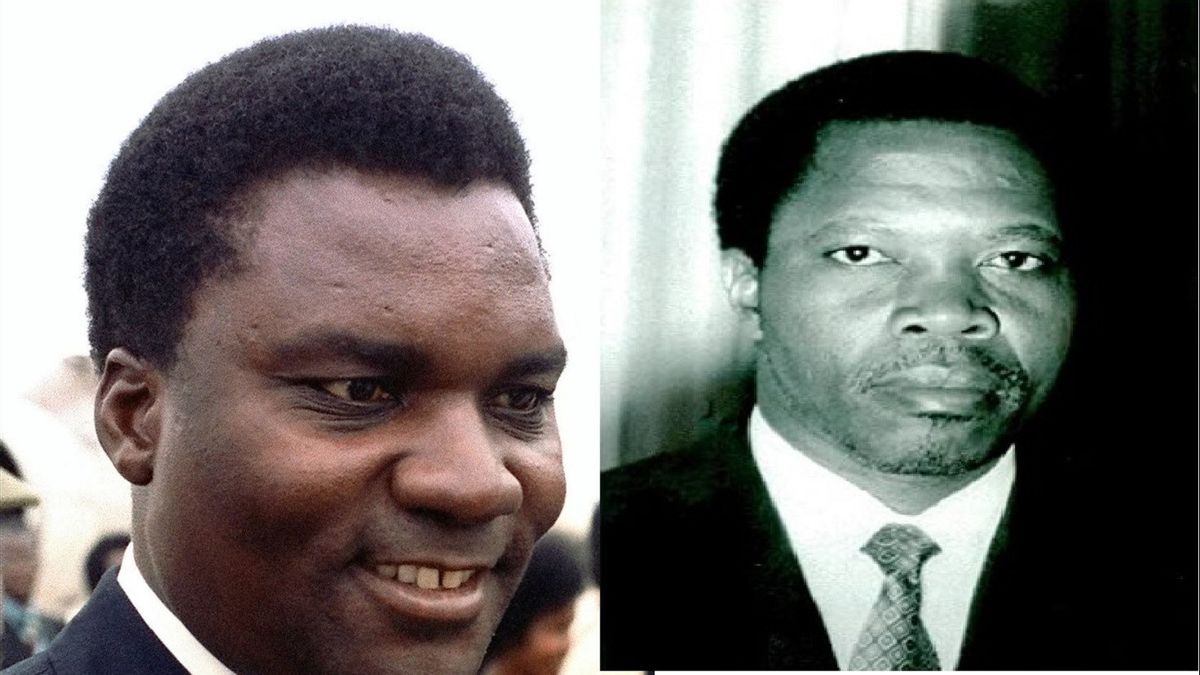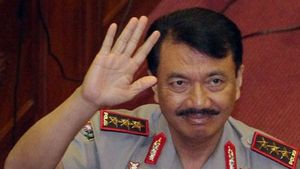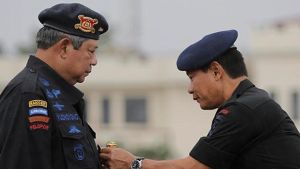JAKARTA - On April 6, 1994, the President of Rwanda and the President of Burundi were killed. The two country's leaders were killed when their plane was shot down while landing in Kigali, the capital of Rwanda.
This was reported directly by the Central African country and the United Nations (UN). Rwandan President Juvenal Habyarimana and then Burundian President Cyprien Ntaryamira returned from a conference held in Dar Es Salaam, Tanzania.
The two presidents discussed ways to end ethnic bloodshed. Citing the BBC, a bloody feud between the majority Hutu and Tutsi minority has ravaged the two small Central African countries for centuries.
Conditions were very bad in Burundi, where up to 100,000 people were killed as a result of the ethnic rioting. In Rwanda, Coalition President Hutu Habyarimana reached a peace agreement in August 1993, with the Rwandan Patriotic Front (RPF) rebels, which consisted mainly of Tutsi.
But the agreement failed to establish a transitional government. The deaths of the presidents, both of whom are ethnic Hutu, exacerbated the situation for the two countries. Even intense fighting has been reported around the Presidential Palace in Rwanda after news of the deaths spread.
The news agency in Kigali said a plane explosion rocked the city. Even so, it was not immediately clear who was involved in the fighting.
The Rwandan-Burundian WarRwanda's Ambassador to the United Nations, Jean Damascene Bizimana, described the deaths of the two presidents as assassinations. The UN Security Council members took a minute's silence for the presidents and then asked for calm as the accident was investigated.
From 1890 to 1962, Rwanda and Burundi were one country: Rwanda-Urundi. The country was briefly under the control of Germany and Belgium.
But freedom changes everything. The monarchy was dissolved and Belgian troops withdrew. This created a power vacuum that had to be filled by Tutsi and Hutu.
The emergence of two new countries occurred in 1962, namely the country of Rwanda, which was dominated by the Hutu and Burundi which was dominated by the Tutsi. Since then ethnic battles have raged.
Uprising erupted in 1994 with civil war in Rwanda, in which hundreds of thousands of Tutsis and moderate Hutu were killed. In Burundi, ethnic wars have worsened since October 1993, after elements of the Tutsi-dominated army killed President Melchior Ndadaye, the first Hutu to rule the country.
One million people were forced to flee to Zaire, Rwanda and Tanzania. Ethnic violence continued sporadically after Cyprien Ntaryamira, also from the Hutu, took over the presidency and appointed a prime minister from Tutsi.
The Hutu militants who moved to Zaire are still going through bad luck. In October and November 1996, there was a crisis due to the civil war in Zaire, sparked by the Hutu-Tutsi battle.
It cut food and medical supplies for the more than half a million Hutu refugees in Zaire. The situation became even more desperate when the UN-appointed envoy to negotiate a ceasefire warned of the possibility of a regional war between the Hutu and Tutsi and other massacres, as happened in Rwanda before.
Apart from war, there is also the threat of epidemics and mass famine. World powers began to set up peacekeeping missions when rebels in Zaire, dominated by Tutsi, took control of refugee camps and sent refugees home.
In December 1996, Hutu refugees in Tanzania were given until the end of the year to return to Rwanda. Several Tanzanian soldiers then walked with the refugees. But there were no reports of violence.
"There are some military personnel on the street. But they are not hurting the refugees at all," said Linda Stops of the International Federation of the Red Cross. "They seemed more or less just on guard."
Judith Melby of the UN refugee agency said refugee camps in Tanzania were completely emptied. Most of those returning to Rwanda have homes within 30 kilometers of the border so they don't have to walk far after reaching their homeland.
* Read other information about WORLD HISTORY or read other interesting writings from Putri Ainur Islam.
TODAY'S HISTORY OthersThe English, Chinese, Japanese, Arabic, and French versions are automatically generated by the AI. So there may still be inaccuracies in translating, please always see Indonesian as our main language. (system supported by DigitalSiber.id)




